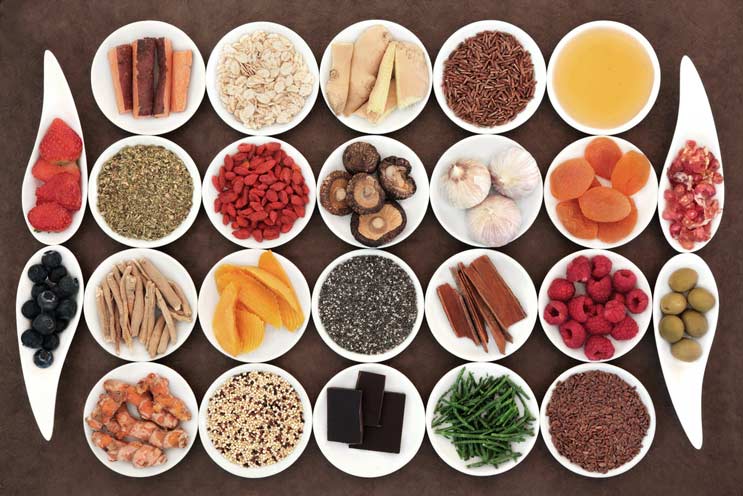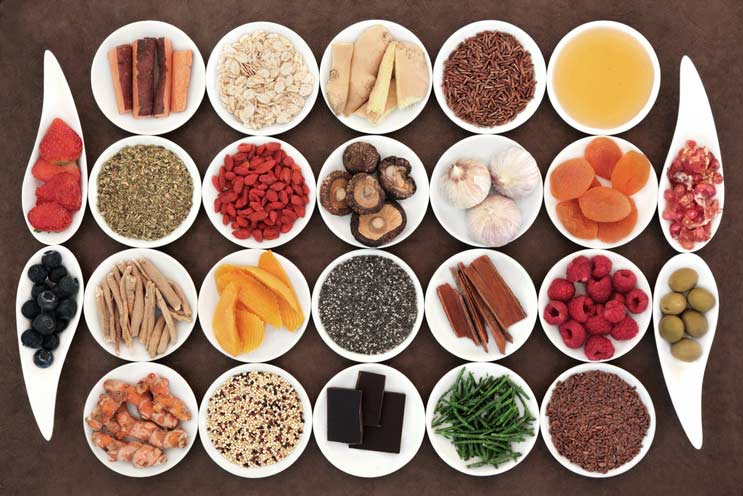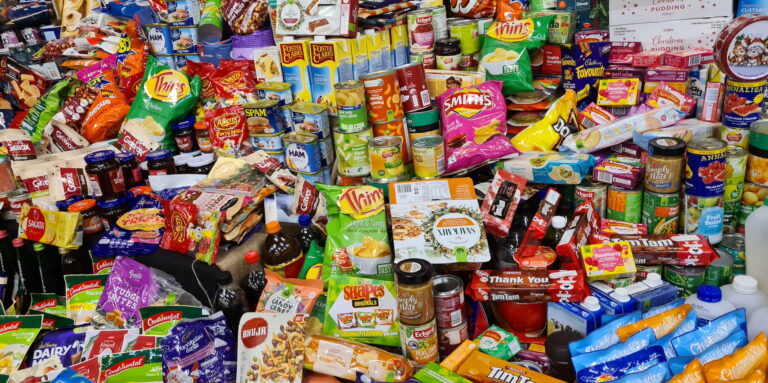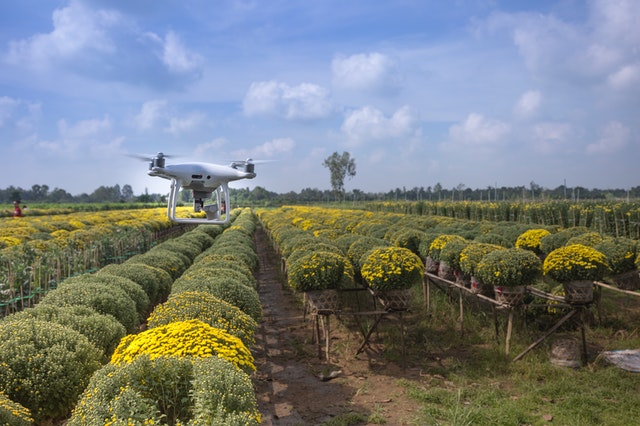Since the countries development, Chinese people have shifted from what is tasty to eat to eating properly. Up until the last years China was widely praised for its healthy diet and nutritional balance of food; since then the bad habits of Western diets have crept in and obesity is now a major health concern in China. But China’s middle and upper-class are today more and more concerned about their health and diet. A new term is entering Chinese consumers’ vocabulary, Superfood (超级食物). A marketing term used to describe foods with huge health benefits. Although this term is not recognized as an official scientific term, but it is generally accepted that Superfoods contain vitamins and minerals that are good for people’s health and may even be beneficial in easing medical conditions. Often, Superfoods contain anticancer, antioxidant, nutrients and fiber and many help with longevity, which is much desired by the Chinese community nowadays.
Around 1987 to 1988, the source of food in China was very low, the market only sells very few fresh foods, and the chance to buy foreign food was extremely limited. For example, Coca-Cola was considered as a luxury product at that time. Between 1989 and 1991, the food market began to grow rapidly and private companies have taken the lead in this sector. Supermarkets in China only enter and develop in China in the late 1990s.
Change of Diet Choice in China
 Chinese’s consumption of carbohydrate decreased from 66% to 52% from 1991 to 2014, and within large cities such as Beijing, Shanghai, and Chongqing, the consumption level is even less. But on the other hand, the consumption of fat and oily food increased from 10% to 32% and this figure is even larger in large cities such as Beijing and Shanghai. However, the consumption of beans, grains, and other healthier foods are still low at the time.
Chinese’s consumption of carbohydrate decreased from 66% to 52% from 1991 to 2014, and within large cities such as Beijing, Shanghai, and Chongqing, the consumption level is even less. But on the other hand, the consumption of fat and oily food increased from 10% to 32% and this figure is even larger in large cities such as Beijing and Shanghai. However, the consumption of beans, grains, and other healthier foods are still low at the time.
In recent years, Chinese consumers have been more into a healthier diet. Foods made from coarse grains are back on the dining tables. Not only the Chinese affluent urban consumers are willing to pay high prices for healthy foods, but even the lower-income Chinese consumer’s preferences are gradually shifting towards a more healthier food selection. The Chinese lower-income consumers are gradually abandoning non healthy snacks and non expensive food such as instant noodles to healthier food selection. As the Chinese consumers increase their awareness on food safety, healthier food selection such as fresh milk, cranberry, avocado, olive oil, organic food and so on creates a huge opportunities for manufacturers.
According to a recent market study, the consumers in developing countries are willing to pay higher price for healthy food than developed countries. Therefore, the increase of consumer demands for health and their corresponding purchasing behavior points to a huge market opportunity. Chinese consumers are willing to pay a premium for healthier foods, food with labels “natural”, “organic”, “non-GMO”, “no artificial seasoning”, and “no artificial colors” triggers consumers to pay more for their purchase.
New Trend for Superfood in China

With Chinese consumers’ increase in health consciousness, Superfood is the new trend in the Chinese community. Superfood such as avocados contains rich in vitamins and minerals and is also a rich source of “healthy” fats. Avocados are mostly used in Western dishes, but it is thriving its ways into Chinese cuisines. Avocados are mostly accepted by Chinese consumers in smoothies and juices due to its enriched taste. Chia seeds are another popular Superfood choice among the Superfood’s seekers. It is packed with omega-3, fiber and calcium. This is mostly consumed with oatmeal, smoothies, salads or stir-fries. Others such as Spirulina, Goji seed, Ginseng, Royal Jelly, etc. are also popular Superfood in China.
Most Superfood are not being eaten as stand-alone foods, many are combined in smoothies and is most popular in Chinese middle class and the working population. In addition, salads are gaining traction in the market, and Superfoods are often added as a way to make a salad healthier.
High-end Boutique Supermarkets in China
With recent booming of the Chinese economic development and the increase in awareness of food safety, Chinese consumers prefers to go in high-end supermarkets, such as Ole’ (Ole’精品超市) and blt (精品超市). The Chinese consumers nowadays have more purchasing power and are more willing to spend on healthier foods than before. Such boutique supermarkets locates mainly in CBD area in large cities such as Beijing and Shanghai, the main target groups are local foreigners and wealthier Chinese consumers. But recently, more and more Chinese consumers are willing to buy organic food from reliable sources. Imported food source is then their first choice. Boutique supermarkets have a wider selection of imported, organic fresh fruit and vegetables, meats and other food choices. Many Superfoods are difficult to find in China as they are imported food, thus with the increase in consumption of Superfood in China, the boutique supermarkets are consumers’ first choice.
Over the next several years, we expect the consumption of organic and Superfood products to grow immensely as purchasing power of Chinese consumers increase and such as their willingness to pay for better, healthier food selection. The food system of China is distinctly different than those of the Western countries. These differences are associated challenges of both food safety and conducting a business in China (The uniqueness of the culture / The government system / The Supply chain characteristics).
How Daxue Consulting has helped its clients
Daxue Consulting has helped its client selling nuts and chia seeds, to develop specific marketing approaches to drive value in their respective brand portfolios, and competitive environments. Regarding the client’s challenge, Daxue’s support has include a a feasibility study, along with a branding strategy. In order to help the client build and sustain a strong brand with more stable profits in China.
To know more about the Superfood in China, contact us at dx@daxueconsulting.com





